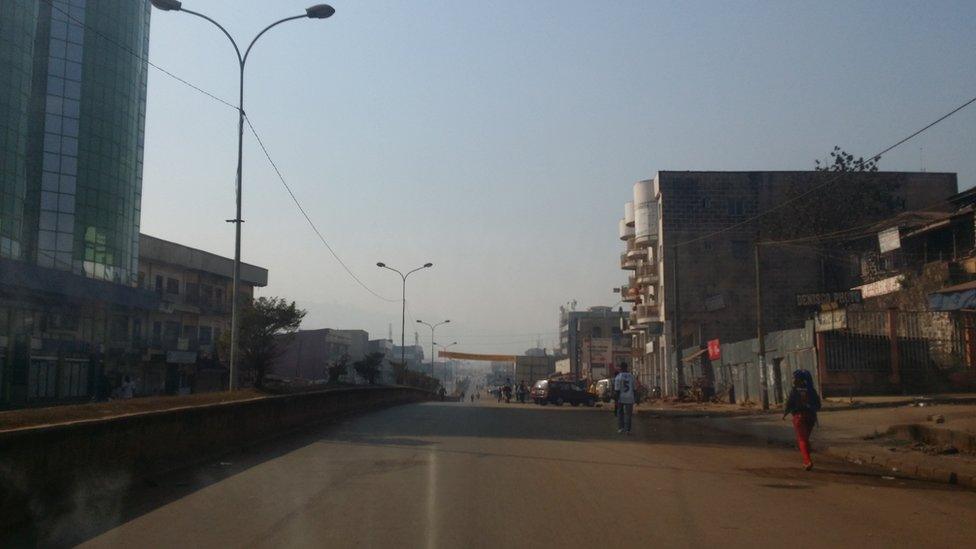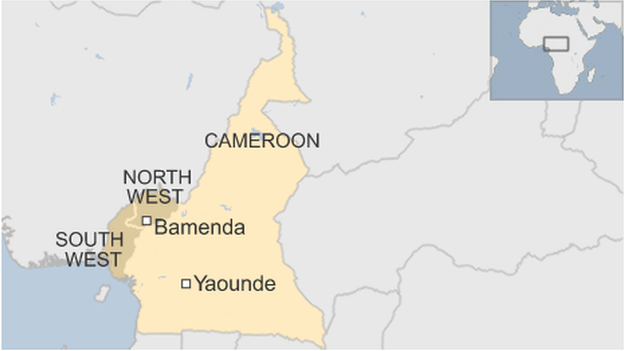Cameroon: Teachers and lawyers in Bamenda strike over language row
- Published

Streets in Bamenda were unusually empty
Teachers and lawyers in the Cameroonian city of Bamenda have gone on strike in a dispute about language, bringing streets and classrooms to a standstill.
The main cause of discontent is the use of French in courts and schools in English-speaking parts of the country, which include Bamenda.
Monday's strike was called on the day schools were due to reopen for the second term of the year.
A BBC correspondent says the strike turned Bamenda into a ghost town.
Classrooms remained closed as teachers as well as students stayed away.
This latest disruption to the school calendar threatens to void the academic year.
The government has urged the disgruntled civil servants to end the strike.

North-West and South-West are Cameroon's two English-speaking regions
English speakers have long complained of discrimination in Cameroon.
They say they are often excluded from top civil service jobs and that many government documents are published only in French, even though English is an official language.
English-speaking lawyers also object to the employment of court workers who do not understand the application of British common law.
Cameroon was colonised by Germany in the 19th Century and then split into British and French areas after World War One.
Later, areas controlled by Britain and France joined to form Cameroon after the colonial powers withdrew in the 1960s.
Bamenda is the founding place of Cameroon's largest opposition political party, the Social Democratic Front.
- Published22 October 2018
- Published23 November 2016
